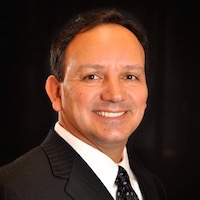Category Archives: Passion
How to Have More Good Days at Work – and at Home
Work. Some days are good, and others not so much… Just like life, right?
Since we spend so many of our waking hours working, it’s likely that a good day at work will spill over into your life after work. Unfortunately, a not-so-good day will do that too.
You can’t always change what comes at you in your professional life, but there are some things you can do to have a better experience of it.
What’s interesting is that improving your experience of work won’t just allow you to enjoy your life more. It can also boost your performance, leading not only to greater satisfaction and fulfillment – but also increased effectiveness and better results.
This week’s video expands on that idea and gives you a simple example of how to have more good days at work – and at home. The audio is a snippet of some opening comments from a recent Pinocchio Principle Unleashed group session.
If you enjoy it and want more, I encourage you to check out the full program here: The Pinocchio Principle Unleashed – The Real Leader’s Guide to Accessing the Freedom & Flow of Your Authentic Genius. Registration for the fall session will open soon, and priority enrollment will be given to those on the waiting list.
We all have plenty of work in our lives. Here’s to putting more life into our work – and watching both grow infinitely richer!
FULL VIDEO TRANSCRIPT
One day when my son was 8 years old, he came home from camp with a riddle. He said, “Pretend you’re in a box with four walls all around you and it’s airtight. There’s no handles and no latches. How do you get out?”
“Hmm, I responded. “I don’t know. I think I would punch my way out.”
He said “No.”
“Okay, then I’d use my legs. I’d kick my way out.”
“No.” He was emphatic.
I thought for a moment. “Hmm. Maybe I’d try to chew my way out.”
He was getting more and more irritated with me. “No.”
I was out of ideas, “I don’t know. I give up. How do you get out?”
“Mom,” he said. “If you’re pretending you’re in a box with airtight walls, the way you get out is you STOP PRETENDING.”
Wow, this from an eight year old.
It’s crept into my thinking several times over the years because I think it’s such a great analogy for what we do.
How Beliefs Can Become Boxes
We have these beliefs…
Have you ever thought about how your belief about work shapes your experience of work? To a large degree, we’re pretty much conditioned to believe that work is not supposed to be fun – that work is something that you do in order to earn a living, pay your bills, feed your family, and be a responsible human being. Work is something that you do and you just get through it.
And living… well, living is what you do after work, right?
It’s part of our societal conditioning. Have you ever noticed that?

You Can Break Out of Your Box
The people who enjoy their work are people who have realized that doesn’t have to be true.
“What if I didn’t think that? What if I approached it differently? What if I thought of work as an opportunity for me to do something cool, to contribute to something bigger than me? What if I thought of work as an opportunity to be around people or to partner with people that I really enjoy, or that are really interesting to me, or that I can learn from? What if I think of work as a way that I can somehow grow?”
What a novel idea.
Work is What You Make It
What’s interesting is that people who believe work is a chore, experience it that way. And they get bogged down, and they have so much to do, and they feel like they’re never going to be able to finish it. And it’s one more thing and everything’s going wrong. And then there’s this and there’s that and they can’t wait to go home.
And that person could be working side by side with somebody who believes – even just for that day, even just for that moment, that work is something different. And they will have a whole different experience. They will tell you something entirely different.
It’s not that they won’t have a whole boatload of work to do. It’s not that they won’t have pressure or deadlines and people relying on them and more to do than there’s time to do.
But there’s something about people who believe different things about work that changes the way they interact with everybody. EVERYBODY.
Learning How to Have More Good Days at Work is About Making a Choice
If you think about the last time you went even just to get a cup of coffee… the difference between somebody taking your order that never makes eye contact with you, that’s having kind of a crappy day, that is kind of wearing it on their body and the way that you feel when they serve you…
…the difference between that and somebody who when you walk in, looks you in the eye and asks you how you’re doing and maybe shares something funny or is genuinely interested in you. And really you can tell that when they ask you how you are, it’s not just part of their script. There’s something about their presence that is with you.
I guarantee you they are having a better day than the other person… not because anything different is going on, but because they made a choice to see work differently.
Make YOUR choice.
For more, visit www.UnleashtheExtraordinary.com
Does Your Work Life Need Resuscitating?
I have always been amazed by the number of people who think of work as a necessary evil — simply what must be done to earn a paycheck. For so many who toil through their workday, the primary goal is to make it to the weekend so they can really live.
Going through the motions, working day after day with others whose hearts and minds they seldom truly connect with, they withhold the very parts of themselves that make them come alive.
For some it wasn’t always this way. Many began their careers ignited with passion and optimism, only to find that their flames began to flicker as they encountered obstacle after obstacle that kept them from achieving what they believed would be success.
Succumbing to the unwritten rules of the organizations and other environments they found themselves in, which suggested they needed to act or think in a certain way to get ahead, they may have slowly sold out on their dreams and relegated themselves to quiet complacency.
Many of us were not brought up to expect that work would be fun or gratifying in any way – nor should it be. That’s why they call it work, you may have been told. As a result, you may have never really expected much from your career or professional life. And as the saying goes, life has a way of living up to your expectations.
Most of us have learned how to turn ourselves on and off at will, in an effort to spare ourselves the pain of disappointment or frustration — or to maintain what we have come to believe is a professional demeanor. It is not uncommon to hear people say that they are very different at work than they are at home.
Those golden parts of yourself that you think you are protecting suffer when you don’t let them breathe and interact in the very realms that allow you to learn who you are and what you are here to do in the world.
You miss the chance to become a part of something greater than yourself. And the organizations and communities you are a part of miss out on the unique contribution you have the potential to make.
You can no longer afford to fragment yourself in this way, denying the fulfillment of your secret dreams and talents and downplaying the insights you have about what you can do to make life better — for yourself, and everyone around you.
As more and more of us feel the pain that accompanies the denial of our spirits, we have begun to realize that the time has come for us to bring the totality of who we are to what we do, no matter our vocation, title or role.
There are people among us who have the ability to snap us out of our trances — our states of quiet desperation — and help us bring more of who we truly are to everything that we do.
They can do this for others because they have done it for themselves. They are called “real leaders”. And they exist at all levels of organizations, regardless of their titles or roles.
Real Leaders inspire others to perform at their very best,
because they themselves are inspired.
When was the last time you felt inspired in your work? When was the last time you had passion for your career? What is it that allows you to feel a sense of wonder and contribution to something bigger?
If you have lost touch with that, do yourself and everyone around you a favor and take some time to reconnect with it. You have something deep inside that you are uniquely qualified and put on this earth to create or do.
When you were young, the energy of your dreams likely propelled you along your path — sometimes blindly, but it gets you off your duff and into action.
You’ve likely experienced hardships along the way and it may have felt at times as though you were failing again and again. Life throws you curve balls and you can find yourself feeling beaten down and doing what you can to just get by, running from one crisis to another and sometimes going in circles.
At some point, you will be tempted to check out and take an easier path – one that allows you to go numb and somewhat unconscious. It may work for a while, but over time you’ll begin to feel the misery that comes along with abandoning your dreams and letting your passion take the back seat.
What would it take for you to get excited about what you are doing right now? What is the bigger why of the work you do every day? Who does it serve, and how?
If you can’t answer that question, do some digging. When you can connect those dots to a bigger picture, you may find that what you thought was insignificant is quite meaningful – and a vital piece of a larger puzzle you are meant to help assemble.
As you recognize your part and the value you provide, perhaps you’ll be inspired to bring a little more of who you are to what you do by playing more fully, being more present, and connecting more deeply with those who rely on you.
Your passion is like a hidden well with unlimited reserves – tapping that well will allow it to grow exponentially. And as you unleash it in your work, you will draw out something extraordinary in every human being that comes into contact with it. That is the essence of real leadership.
We are beginning to awaken to our unique calls to service, creativity and innovation. As you find ways to unleash your distinctive talents and passions at work, you will significantly increase the quality of your own life, as well as the lives of everyone around you.
If you are interested in learning more about how to revitalize your life – both on and off the job, I encourage you to consider enrolling for the fall session of The Pinocchio Principle Unleashed: The Real Leader’s Guide to Accessing the Freedom & Flow of Your Authentic Genius, kicking off the week of April 18th.
This 13-week leadership development program is designed to help high achieving professionals bring out their very best performance in such a way that fills them up rather than depleting them – and allows them to make a bigger impact doing meaningful, inspiring work while leading others to do the same.
How to de-Grinchify your holidays (and your life)
 Every December my family and I watch The Grinch Who Stole Christmas. It’s fun to villainize him – the insensitive jerk who figures if he can’t be happy, no one else should either. He steals their Christmas presents, their trees, stockings and decorations – even their food. And then he is baffled that even without all their “stuff” Christmas still comes.
Every December my family and I watch The Grinch Who Stole Christmas. It’s fun to villainize him – the insensitive jerk who figures if he can’t be happy, no one else should either. He steals their Christmas presents, their trees, stockings and decorations – even their food. And then he is baffled that even without all their “stuff” Christmas still comes.
As he watches them celebrate, hand in hand singing, his heart begins to grow and it busts right out of its shell. The Grinch finally realizes that he cannot take their celebration away because it comes from within them. And then he finds that he too has something within himself that is redeeming and worth celebrating.
No matter what holiday you celebrate this time of year, it is a time to celebrate something that transcends all the trappings of this world – the stuff we collect, the agendas we have, the races we are running, the things we fill our lives up with that keep us from truly enjoying each moment of them. It is a time for us to honor something within each of us that is greater than all of that – timeless and boundless – something that no one can take away. The holiday spirit is simply a reminder of a Spirit that is with us all the time. Sometimes dormant, sometimes forgotten, sometimes forsaken. Sometimes drowned out by all the noise and busyness in our lives.
But we can reconnect with it anytime. And when one or more people do reconnect, it opens the hearts of others – even someone as foul and reproachable as The Grinch. It is this Spirit that gives life to our most precious dreams and visions and guides us on a path that will allow us to find everything we need in order to realize them. It helps us to navigate through our biggest challenges and to make the most of our opportunities.
It unites us in ways that allow us to partner with others who are strong where we are weak and share a passion for that which we most wish to create. It is the lifeblood of our organizations, our communities, our world. And every year we have a beautiful reminder of its presence in ourselves and everyone around us.
We need not do anything, acquire anything, or prove anything to enjoy this extraordinary gift. We only need to remember who we really are and what is most important.
All of the gifts that we give and receive are really an outward gesture of honoring what is true within each other – expressions of our appreciation, our gratitude, our admiration, our love. So it’s okay if you don’t have all your Christmas shopping done, your presents wrapped, your table prepared to perfection. And it’s okay if you haven’t even been able to clear the work off your desk long enough to even begin thinking about those things. Right now, right here, you can stop and reconnect with this Spirit and allow it to give form to whatever you do and say from this moment forward.
When we act with the intent of tapping into this Spirit within and sharing it with others, anything we do will be heartfelt – whether we have the “perfect gift”, or no gift at all. And we can give this gift to ourselves too – when we simply remember what is most real within us and what is most real within those around us.
The wonderful thing about this time of year is that it also marks the end of one thing and the beginning of another. As January 1 draws closer, we realize we have a whole new year before us – a brand new clean slate upon which to create something that is a reflection of this beauty we are now rediscovering, reconnecting to, and celebrating within ourselves and everything around us.
I wish you and yours the happiest and most blessed of holidays.
Grinch photo by texaslady1960 from Photobucket.com.
The Fallacy of Failure

“What great thing would you attempt if you knew you could not fail?”
~ Robert H. Schuller
I have come across the above quote often and pondered it reflectively. It inspires me to think big – contemplating all the many things I have dreamed of creating or being a part of. I often feel compelled to make a list – and have done so many times. I encourage my clients to do this as well.
But the most interesting and show stopping part of that quote for me is the idea of “failure”.
It’s easy to think of shooting for the moon when the idea of crashing down to the ground doesn’t enter the picture. We can dream and scheme all we want, but in order to make our dreams real, we must take action. And when we do, this idea of failure seems to have a way of creeping in despite our best attempts to move forward in spite of it.
Failure means different things to different people. But I think the most debilitating thing about the idea of failure is having to experience or endure some kind of pain – pain of rejection, embarrassment, loss, financial ruin – not to mention its actual physical variations.
The interesting thing to me about pain is that – thankfully – it is usually finite. It comes and it goes. And while we don’t always have any control over whether we experience it, we do seem to play a part in how long it lasts and how uncomfortable it gets.
As a kid, getting immunizations was terrifying. I remember how worked up I would get before the needle even came close to my skin. And I’ve watched my kids do the same thing – even screaming or wailing before contact was ever actually made. But a few seconds later, the injections were completed before the kids even realized it.
They got off the exam table and immediately went onto other things – except perhaps when one of them needed a little more sympathy and deliberately focused on the site of the shot and the blood on the bandage – prolonging the unpleasant experience and making it into something far more painful than it really needed to be.
I think we do the same thing when we contemplate the pain that accompanies what we believe would be “failure”. Our minds have a way of making it far more ominous than it ever is in reality. And if we happen to find ourselves experiencing it, we can also fall into the trap of unwittingly making it more uncomfortable than it really needs to be.
But we can also exercise resilience and determination in our ability to bounce back and focus on something that will allow us to move forward in spite of an otherwise unpleasant experience.
Because what it really comes down to is what your experience – regardless of the way it turns out – has given you, rather than cost you. People who have accomplished extraordinary things in the world are the first to tell you that what many refer to as “failure” has plagued them time after time – and many will tell you those experiences were prerequisites for their success.
What differentiates them from those who allowed “failure” to defeat them is that they picked themselves up, figured out what they could learn, and moved forward armed with a new awareness, a new understanding, and a renewed commitment to their greatest dreams and visions.
I think we all need a shot from time to time. A shot of humility, compassion – and humor. A shot that will only serve to make us stronger, more determined, and far more resilient than we were before. What great thing can YOU achieve today, knowing that you simply cannot fail?
If you’re ready to play a bigger game, consider enrolling in the spring 2020 session of The Pinocchio Principle Unleashed: The Real Leader’s Guide to Accessing the Freedom & Flow of Your Authentic Genius. It’s an exclusive thirteen week leadership development program that will help you push through the resistance and sidestep the pitfalls that keep you from unleashing GENIUS in yourself and those you lead — and unlock extraordinary performance in yourself and other while experiencing greater joy and fulfillment both on and off the job.
For a limited time, you can lock in the 2019 prices before they go up in 2020. Give yourself an early holiday gift that’ll help you usher in a bigger, brighter 2020 by claiming one of the ten seats that are now available.
Why Losing Your Passion for Work is a Bigger Problem Than You Might Think
Has work become a bit of a grind?
 You might tell yourself that work isn’t supposed to be fun — that’s why they call it work. But when you spend the majority of your waking hours just getting through the day or counting down to the weekend, you have a bigger problem than you might think.
You might tell yourself that work isn’t supposed to be fun — that’s why they call it work. But when you spend the majority of your waking hours just getting through the day or counting down to the weekend, you have a bigger problem than you might think.
Most of us don’t start our professions that way, but over the years, disappointment, frustration and pressure can lead to disillusionment, disengagement and burnout. Lack of passion and joy on the job will hit you hard in three major areas:
(1) Personally
(2) Professionally, and
(3) Organizationally
Let’s take a look at how work becoming a grind affects you personally
You might think that as long as you can enjoy yourself after five (or six, or seven) and on the weekends, you will be just fine. But when you spend the better part of your day on a kind of autopilot, feeling like you’d rather be somewhere else, it’s hard to keep that negativity from spilling over to the rest of your life.
You may find yourself irritable, preoccupied, exhausted or just brain dead. And whether you know it or not, that infringes on your ability to fully enjoy the things, experiences and people in your personal life that you hold most precious.
You may even have a decent paycheck and enjoy a position of influence and status in your organization. But when the work you spend more of your waking hours doing is a continual grind, it’s easy to begin feeling as though life itself lacks meaning and fulfillment.
Perhaps you’ve made the decision (consciously or unconsciously) to put your personal happiness on the back burner in the name of your professional success and upward mobility.
Well, unfortunately lack of passion and joy on the job has a negative impact on your professional effectiveness as well. Let’s take a closer look at that.
Productivity
You can try all you want, but when you are exhausted and overwhelmed you will work very long days spinning your wheels without getting a whole lot accomplished. You may think you just don’t have enough time to finish everything on your plate. And while it is true that time is finite, your real problem is lack of energy.
Creativity and Problem Solving
Lack of energy makes everything take far longer than it should. It blocks you from accessing your creativity, leads you to unnecessarily complicate things, and pushes the solutions to your problems just out of reach. All of this will contribute to a feeling of being unable to get important things done, which will cause you to work longer hours and become even more exhausted.
Influence
If your job requires you to have even the slightest degree of influence over others, consider this: Getting someone excited about doing something is largely a matter of sharing your enthusiasm. But enthusiasm isn’t something that is easily feigned. And when you try to fake it, you will come across as being disingenuous, which will keep others from trusting you.
It’s exceedingly difficult to get anyone — whether it be your coworkers, your direct reports or your customers — to become excited about something you can’t muster up the passion for yourself. And while we’re on the subject of coworkers, direct reports and customers, let’s talk about the impact lack of passion and joy on the job has organizationally.
If you are a leader of others, whether you know it or not, you are setting the tone for the entire organization.
If you are not feeling emotionally committed, passionate, enthusiastic and connected to your work and the people you partner with to do it, chances are the people you lead will not be feeling it either.
Employee engagement
Research indicates that as much as 70 percent of U.S. workers are not engaged. That translates into people who are physically present on the job, but not emotionally or mentally all there. When people are disengaged they go through the motions, doing as little as possible to fly under the radar.
The cost of complacency
This complacency causes all kinds of problems, including low quality products and services, plummeting productivity, low creativity and innovation, strained customer relationships, intra and interdepartmental conflict, absenteeism, high turnover, and ultimately low profitability. It does little to attract key talent, and certainly does not contribute to having a competitive advantage in the marketplace.
What does that have to do with you?
Engaged employees are people who feel part of something bigger than themselves — an organization with a shared purpose that has meaning to them. And they want to work for a boss who is turned on and tuned in to the organization and them as people.
If you have no passion or joy for your own work, you will be hard pressed to inspire it in others. In fact, you could end up unwittingly sucking the joy from those who already are engaged, and/or driving them to look for work elsewhere.
In summary
Losing your passion and joy at work has significant implications for you on three different levels:
(1) Personally. You just can’t turn it on and off like a light switch. If you are feeling a lack of passion and joy at work, chances are good it will translate into your personal life, like a dark cloud that follows you around despite your insistence that you can shoe it away. You deserve more out of life than that.
(2) Professionally. The overwhelm, frustration, and exhaustion you feel is likely keeping you from performing at your best. While you may be working very long hours, your problem is not lack of time but rather lack of energy. Lack of energy is accompanied by lack of creativity, problem solving and influence. Energy comes with passion and joy. And when passion and joy are lacking, your performance will be lacking too.
(3) Organizationally. Just as passion and joy can be contagious, so too is the lack of it. A leader’s lack of passion and joy gets translated into disengagement, both for the leader, and the followers. Disengagement negatively impacts productivity, innovation, customer satisfaction, employee recruitment and retention — and ultimately profitability.
So, if you feel like work has become a grind — but not a problem you have the luxury to address right now, think again. It may well be that you can’t afford not to. Rejuvenating your passion and joy on the job is easier than you think. And it doesn’t necessarily mean that you have to find another job.
But that’s a subject for another article…
Looking to get away from that grind and reignite your passions? Check out the The Pinocchio Principle Unleashed: The Real Leader’s Guide to Accessing the Freedom & Flow of Your Authentic Genius, an exclusive 13-week leadership development program designed to help high achieving (and often overextended) leaders minimize pressure and stress so they can access their best work — and enjoy their lives more both on and off the job.
Though the spring program has now closed, registration for the fall program will open soon. To get on the waiting list, email Support@DianeBolden.com.
Living the Dream

NOTE FROM DIANE…
Last week I did a Facebook Live video on how to overcome the three biggest obstacles to achieving your intentions, visions and goals. The below article elaborates on some of the points I made in that video. If you haven’t had a chance to see the Facebook Live, I encourage you to check it out. It’s only my second one – something I’ve been inspired to do as a way of fulfilling my own personal vision for 2019.
Stay tuned (or subscribe) for more, and scroll to the end of this message for a time sensitive opportunity to work directly with me in an exclusive program that will kick off in April. Now for today’s article…
What do you find easier – dreaming big, or finding a way to make those dreams come true?
Most of us have more difficulty with the latter. If you don’t, you may not be dreaming big enough. I remember a time when one of my clients and I were musing about what makes realizing those dreams and visions so difficult. We felt that the toughest part is connecting the vision to reality: Identifying and executing the steps that must be taken to get from here to there.
FROM VISION TO REALITY…
For years, I was convinced that having a vision and goals meant perceiving a clear and specific picture of what was to come and creating a plan that would ensure that certain milestones were met at designated intervals. I was taught that goals had to be specific, measurable, and time bound (and have spent a good part of my career teaching others the same). I would spend a significant amount of time wordsmithing these goals and creating something similar to a detailed project plan as though I could bend reality to my will. And then life would happen and I’d get exceedingly frustrated when things didn’t fall into place the way I had planned.
The part of us that wants to identify a course of action that mitigates risk and controls all the variables is akin to a manager, whose responsibility is to plan, direct, organize, and control. The challenge is that preconceived ideas of what must be and all that has to happen to bring it to fruition can never take into account all the unexpected twists and turns that each day throws at us. So, the manager in each of us needs to take its orders from a higher authority.
FOLLOW YOUR HIGHER AUTHORITY
This higher authority is our inner leader. The leader lives in the present, takes its cues from its inner and outer environment, and speaks to the hearts as well as the heads of its people. It is often that part of us that rises up and recognizes when we must make a change in course in order to realize our greater visions. It blends concrete data with intuitive hunches and moves much more fluidly.
The manager in each of us often wants to fix things and tends to place more attention on what is wrong than what is right. It is so concerned with problems that it has a way of identifying with them and unwittingly propagating them. The manager would have us set goals about the behaviors we want to stop, and the things about ourselves that aren’t good enough.
These goals almost always fail because they lead us to identify with the very state we wish to rise above. We enter into them from a state of lack, and though our behaviors may temporarily change in accordance with detailed plans we have outlined for ourselves, our thoughts about who we are and what’s wrong keep us tethered and ultimately lead us to act in ways that reinforce old habits and patterns.
MOVE INTO POSSIBILITY AND POTENTIAL
The leader focuses on possibilities and speaks to that part of ourselves and others that has the capability and potential to achieve it. It sees through the eyes of someone who has already realized their goals and visions rather than identifying with the experience of not having been able to do something in the past. The leader in each of us knows that action follows thought and invests time in identifying limiting beliefs and trading them for something more empowering. Rather than moving away from an undesirable place, it focuses on moving toward that which it desires to create.
With the leader in charge, the manager’s willfulness is balanced with willingness – willingness to change and adapt even the best laid plans, to reach higher, and to trust that something greater than ourselves will help us get where we most need to go.
Interested in more on how to bridge the gap between vision and reality and follow the cues of your inner leader? The Pinocchio Principle Unleashed: The Real Leader’s Guide to Unleashing the Freedom & Flow of Your Authentic Genius is coming soon! Registration will be limited to 25 people, and I’m in the process of hand selecting participants. If you would like to schedule a complimentary consultation call to see if you (and/or others from your organization) are a good fit, contact support@DianeBolden.com.
Why Losing Your Passion for Work is a Bigger Problem Than You Might Think
Has work become a bit of a grind?
You might tell yourself that work isn’t supposed to be fun – that’s why they call it work. But when you spend the majority of your waking hours just getting through the day or counting down to the weekend, you have a bigger problem than you might think.
Most of us don’t start our professions that way, but over the years disappointment, frustration and pressure can lead to disillusionment, disengagement, and burnout. Lack of passion and joy on the job will hit you hard in three major areas:
- Personally
- Professionally
- Organizationally
Let’s take a look at how work becoming a grind affects you personally.
You might think that as long as you can enjoy yourself after five (or six, or seven) and on the weekends, you will be just fine. But when you spend the better part of your day on a kind of autopilot, feeling like you’d rather be somewhere else, it’s hard to keep that negativity from spilling over to the rest of your life.
You may find yourself irritable, preoccupied, exhausted or just brain dead.
And whether you know it or not, that infringes on your ability to fully enjoy the things, experiences, and people in your personal life that you hold most precious.
You may even have a decent paycheck and enjoy a position of influence and status in your organization. But when the work you spend more of your waking hours doing is a continual grind, it’s easy to begin feeling as though life itself lacks meaning and fulfillment.
Perhaps you’ve made the decision (consciously or unconsciously) to put your personal happiness on the backburner in the name of your professional success and upward mobility.
Well, unfortunately lack of passion and joy on the job has a negative impact on your professional effectiveness as well. Let’s take a closer look at that.
Productivity
You can try all you want, but when you are exhausted and overwhelmed you will work very long days spinning your wheels without getting a whole lot done. You may think you just don’t have enough time to finish everything on your plate. And while it is true that time is finite, your real problem is lack of energy.
Creativity and Problem Solving
Lack of energy makes everything take far longer than it should. It blocks you from accessing your creativity, leads you to unnecessarily complicate things, and pushes the solutions to your problems just out of reach. All of this will contribute to a feeling of being unable to get important things done, which will cause you to work longer hours and become even more exhausted.
Influence
If your job requires you to have even the slightest degree of influence over others, consider this: getting someone excited about doing something is largely a matter of sharing your enthusiasm. But enthusiasm isn’t something that is easily feigned. And when you try to fake it, you will come across as being disingenuous, which will keep others from trusting you.
It’s exceedingly difficult to get anyone — whether they are your coworkers, your direct reports, or your customers — to become excited about something you can’t muster up the passion for yourself. And while we’re on the subject of coworkers, direct reports, and customers, let’s talk about the impact lack of passion and joy on the job has organizationally.
If you are a leader of others — whether you know it or not — you are setting the tone for the entire organization.
If you are not feeling emotionally committed, passionate, enthusiastic and connected to your work and the people you partner with to do it, chances are the people you lead will not be feeling it either.
Employee Engagement
Research indicates that as much as 70% of U.S. workers are not engaged. That translates into people who are physically present on the job, but not emotionally or mentally all there. When people are disengaged they go through the motions, doing as little as possible to fly under the radar.
The Cost of Complacency
This complacency causes all kinds of problems, including low quality products and services, plummeting productivity, low creativity and innovation, strained customer relationships, intra and interdepartmental conflict, absenteeism, high turnover, and ultimately low profitability. It does little to attract key talent, and certainly does not contribute to having a competitive advantage in the marketplace.
What does that have to do with you?
Engaged employees are people who feel part of something bigger than themselves — an organization with a shared purpose that has meaning to them. And they want to work for a boss who is turned on and tuned in to the organization and them as people.
If you have no passion or joy for your own work, you will be hard pressed to inspire it in others. In fact, you could end up unwittingly sucking the joy from those who already are engaged, and/or driving them to look for work elsewhere.
In Summary
Losing your passion and joy at work has significant implications for you on three different levels:
(1) Personally. You just can’t turn it on and off like a light switch. If you are feeling a lack of passion and joy at work, chances are good it will translate into your personal life, like a dark cloud that follows you around despite your insistence that you can shoe it away. You deserve more out of life than that.
(2) Professionally. The overwhelm, frustration, and exhaustion you feel is likely keeping you from performing at your best. While you may be working very long hours, your problem is not lack of time but rather lack of energy. Lack of energy is accompanied by lack of creativity, problem solving and influence. Energy comes with passion and joy. And when passion and joy are lacking, your performance will be lacking too.
(3) Organizationally. Just as passion and joy can be contagious, so too is the lack of it. A leader’s lack of passion and joy gets translated into disengagement, both for the leader, and the followers. Disengagement negatively impacts productivity, innovation, customer satisfaction, employee recruitment and retention — and ultimately profitability.
So if you feel like work has become a grind — but not a problem you have the luxury to address right now, think again. It may well be that you can’t afford not to. Rejuvenating your passion and joy on the job is easier than you think. And it doesn’t necessarily mean that you have to find another job.
Consider making reigniting your passion at work a priority.
And if you are interested in receiving some support and guidance, I encourage you to check out The Real Leader’s Guide to Freedom and Flow Group Intensive, an exclusive twelve-week small group mastermind/coaching program/online training course kicking off on March 20. Sign up before March 10 and receive a 15% early bird discount!
Are You On the Verge of Transformation?
Do you ever feel like you are in the middle of some kind of transformation, but not yet clear on exactly where you are going and what form things are going to take? Speaking from my own experience, it can be a bit unnerving when you are in the thick of it. You may feel as though you’ll never find your way through.
They say it helps to find inspiration from those who have gone before you. On that note, this week’s video post (which I filmed a few years ago when my daughter was still quite young), features a caterpillar.
I hope you enjoy it.
How to Survive and Thrive in Change and Chaos
We have all experienced times of pressure, anxiety and sudden change.
When jobs are tenuous or organizations are restructuring, it might feel as though life itself is turning upside down. Frustration and turmoil is a common response to this kind of uncertainty and disorientation. It can lead to exhaustion and hopelessness. But consider this as you think about the things in your life and career that may feel as though they are spinning out of control…
What if the only thing standing in your way of perfect peace, true productivity and the satisfaction of living a life of purpose – was your thinking?
I know it may feel as though you are at the mercy of your circumstances. However, even in the worst of situations you have more control than you might realize. One of the key attributes embodied by extraordinary leaders in all walks of life is encapsulated in the word “responsibility” – not just in a moral or ethical sense of being accountable for our actions, but also – and perhaps just as essential in times of change and chaos – remembering that there is wisdom in recognizing that we have the ability to choose our response. And that the response we choose will have a resounding impact on ourselves and everyone around us.
Start with awareness.
The greatest change agents start by recognizing what they have to work with before they can create change that will be sustained. They assess their environment to determine what the best entry point for that change is before they make their move. They don’t waste their time worrying about things that are truly out of their control, like changing the weather. Instead, they focus their attention and energy on those things that they do have the ability to influence and start there.
Extraordinary leaders know that the most powerful and sustainable change must start from within themselves.
Watch your stories.
The thing that fascinates me about a seemingly chaotic state of affairs is not so much what is happening, but the stories we are telling ourselves about what it means — and the impact those stories are having on the way we are responding to it. When we react to things with fear, we end up amplifying that which we are afraid of and adding to the anxiety. Our fears drive us to act in ways that keep us from acting on our intuition and finding the answers that will truly serve us. Sometimes, we end up behaving in ways that make our fictional stories become real.
As an example, when you tell yourself a story about what is happening that leaves you feeling threatened, you may find yourself closing up and treating others with suspicion and mistrust. The way you are behaving toward people may well provoke a response in them that appears to validate your fearful story. However, in this scenario, it is very likely that their behavior is more of a reaction to the actions your story led you to take than anything else.
Our fearful stories are like the viruses we protect our computers from.
These nasty viruses are often embedded in emails that pique our curiosity or rouse our fear. When we unwittingly activate them, they spread often uncontrollably and we risk passing them to the computer of our friends, associates and countless others. The viruses corrupt our systems until they no longer function effectively. Like computer viruses, our stories have a way of spinning us out of control and interfering with our ability to rise up to our challenges to find the opportunity that is always there waiting for us to discover and leverage it.
Our rational minds want answers and security.
They need to figure everything out and almost automatically occupy themselves with trying to sort through data to arrive at conclusions. The problem is that our minds are plugging imaginary variables into the equation that end up further exacerbating the anxiety we are already experiencing. When they are done with one variable, they plug in another and the churning continues, leaving us with an uneasiness that keeps us on edge.
What’s the worst that can happen?
In the grip of this madness, sometimes the best thing you can do is indulge your mind with a variable that will allow it to do its thing. Go ahead and plug in the worst case scenario. If the worst possible thing happened, what would you do? Alloy yourself to sit with that question for awhile. Let the fear move through you and keep asking the question, what would I do that would allow everything to be OK? If you sit long enough with your question, you will arrive at some workable alternatives and reconnect with that part of yourself that is strong, resourceful and resilient.
Armed with the knowledge that you will be OK in the worst of scenarios, you can come back into the present and recognize your fearful thoughts for what they are – fearful thoughts. One of the best pieces of advice I ever got, which I pass along frequently is don’t believe everything you think.
You have everything you need.
In the present moment, devoid of your stories about variables that are truly unknown, you are OK. And when new events begin to unfold, if you stay in the moment and access your inner wisdom, you will know exactly what you need to do – or not to do – to be OK then too. And as you go about your daily life in this way, your calm resolve will permeate your interactions with others and through your example, you will help others to rise up to their challenges in ways that unearth the greatness in themselves as well.
 For more tips on navigating through change and uncertainty, check out my book, The Pinocchio Principle ~ Becoming a Real Leader, available on Amazon.com and BarnesandNoble.com.
For more tips on navigating through change and uncertainty, check out my book, The Pinocchio Principle ~ Becoming a Real Leader, available on Amazon.com and BarnesandNoble.com.
How to Navigate Sudden Change
Ever notice that just when you get comfortable, life has a way of shaking things up? Some people seem to enjoy change more than others. Most of us prefer to be the ones doing the changing – it brings newness along with a sense of control – we are at the helms, steadfastly steering our ships. But imagine if you will, that a massive wave summoned by a hurricane has ripped the captain’s wheel right off the ship and you are left clinging to something that no longer has any power. The tighter you grip it, the less energy you have to deal with your circumstances in a way that will truly serve you (and everyone around you as well).
At times like these, we often pray for the storm to pass – for things to revert back to the way they were – or for a specific course of events that we believe would be life’s perfect solution. These solutions are based on what we think we know – which is largely a product of what we have already seen and experienced. And relying upon the patterns and strategies that worked for us in the past is often inadequate for our present and emerging challenges.
The world is changing and so are we.
We tend to strive for comfort and familiarity, even when what’s comfortable isn’t necessarily effective or even satisfying anymore. We wish and pray that the chaos be removed and order be restored. But often life’s little disturbances are exactly what we need to reach our true potential and escape complacency. Perhaps as Eckhardt Tolle wrote in The Power of Now, “…what’s appears to be in the way IS the way.”
Stormy seas (and life’s sudden surprises) have a way of testing our resolve and our resiliency. Pressure brings out our extremes – for better or worse. And fear does funny things to people. At its worst, it produces panic – a physical state that literally disables the brain’s ability to think clearly. At one extreme a person is frozen by fear and at the other he will thrash about like a drowning victim who pulls his rescuers under the water with him. The key to surviving a seeming assault of this kind is learning to relax and stay calmly aware of our surroundings so that we can identify and creatively utilize the resources at our disposal.
One of the most critical resources in our control when all else seems beyond it is our perspective.
The way in which we view things determines the story we tell ourselves about what’s happening, which directly influences the responses we will have. If we believe we are helpless victims at the mercy of something that seeks to destroy us, we will become bitter, resentful and apathetic. In this state our true power remains dormant. We collude with our view of reality to create a condition that validates our doomsday stories and sink even deeper into the abyss. Those who try to rescue us from our self imposed paralysis risk being dragged beneath the current created by our own negativity.
If, however, we view our predicaments as adventures and see them as opportunities to give things all we’ve got, we reach deeply within ourselves and tap reserves of courage, wisdom and ingenuity we never realized we had. In the proverbial belly of the whale we find our inner grit and creatively rise up to life’s challenges in ways that transform us and everyone around us as well. We become the heroes of our own stories.
Regardless of who you are and what you do, there will come a time when the plateau you have been walking upon takes a steep turn in one direction or the other and you will be required to do something that stretches you beyond your usual way of doing things.
Perhaps it will be in your career. The work that fulfilled you at one point in your life may no longer be enough. You might find yourself doing something very well but suddenly devoid of the gusto you once did it with. It could be the company you keep – people who at one time shared your interests and passions but who you suddenly find yourself no longer wanting to spend a lot of time with. Maybe it will be your lifestyle. The objects and material possessions you that once gave you joy could one day feel more like clutter or distractions. These things become like shells that the hermit crab has outgrown. The crab must release its previous home and step bravely and vulnerably into the unknown in order to find something more spacious.
The quest for a new shell and even the new shell itself may feel daunting, clumsy and overwhelming. But the act of letting go of the old to make room for the new allows us to evolve and realize our true potential. Anything less will ultimately become imprisoning. When we allow ourselves room to grow, life’s little and big disturbances are not so daunting. We know there is more to us than meets the eye and finally step into our own greatness. And as we do this for ourselves, we model the way for others to do the same.
 For more tips on navigating through change and uncertainty, check out my book, The Pinocchio Principle ~ Becoming a Real Leader, available on Amazon.com and BarnesandNoble.com.
For more tips on navigating through change and uncertainty, check out my book, The Pinocchio Principle ~ Becoming a Real Leader, available on Amazon.com and BarnesandNoble.com.


